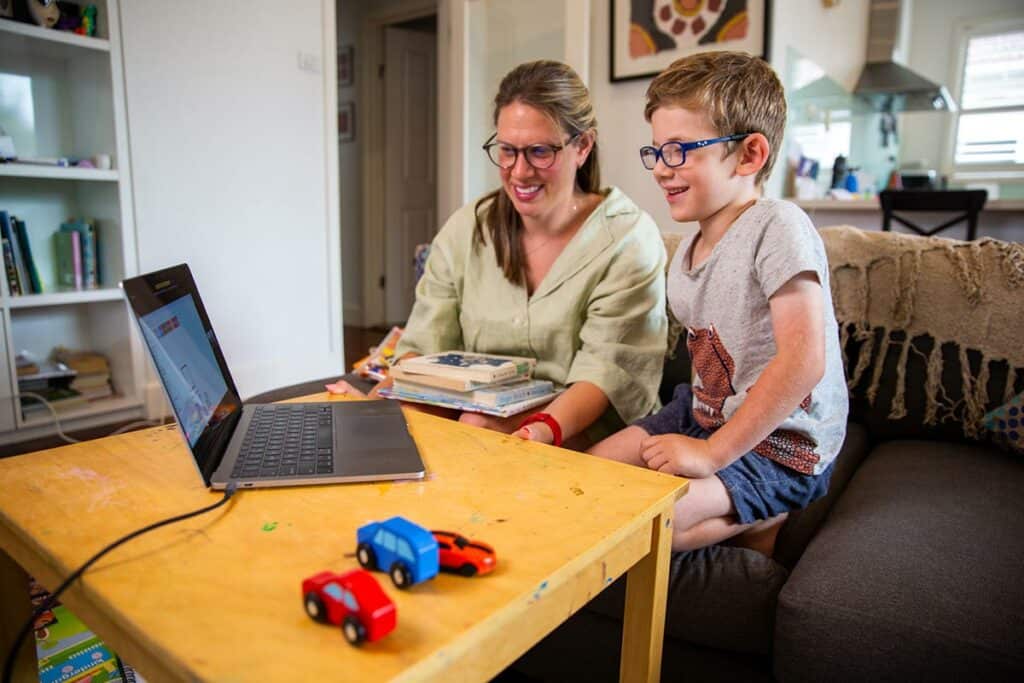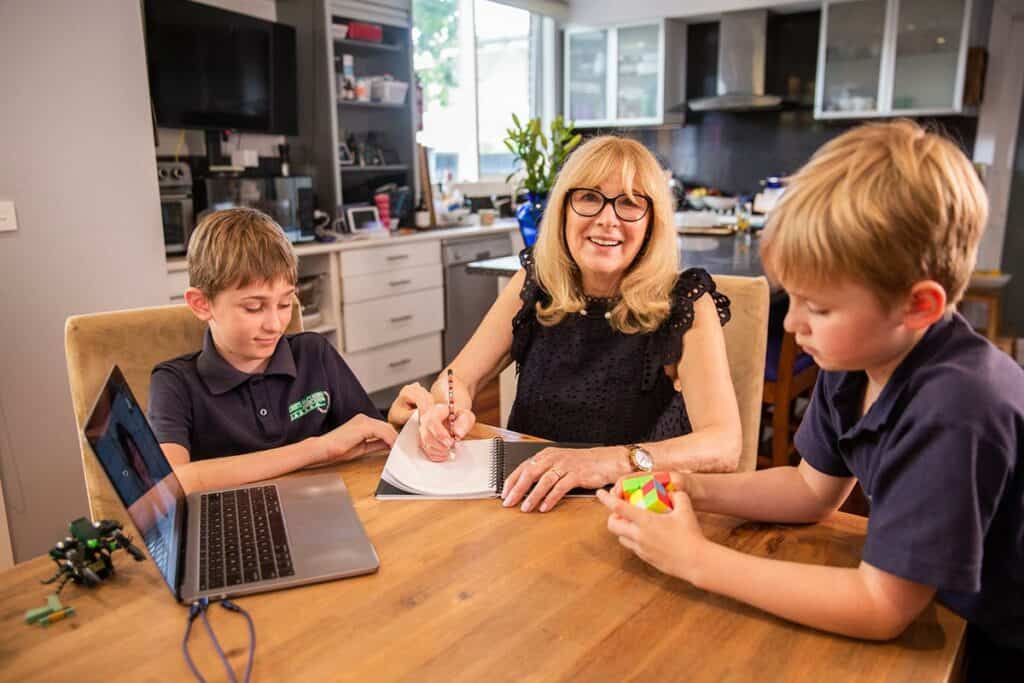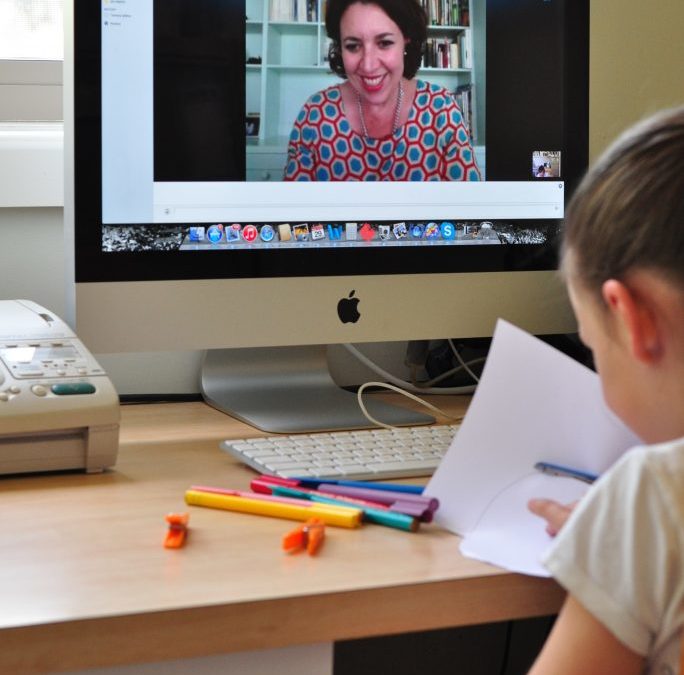It is often said that communication is the key to fostering understanding and communication and can be especially challenging for children with an autism diagnosis. However, with early intervention and the help of highly skilled speech pathologists, we can help your child to reach their goals. In this article, we discuss the many benefits of early intervention and how speech therapy can play a pivotal role in improving communication for children with autism.
Understanding Autism
Autism, commonly known as ASD, is a neurodevelopmental condition that may affect communication, behaviour, and social interaction. Every child with autism is unique, displaying a wide range of strengths and challenges. Some children may have difficulty with verbal communication, while others may find understanding non-verbal cues or engaging in social interactions more challenging.
But how does early intervention help with Autism?
The Power of Early Intervention
Early intervention refers to the targeted and specialised support for children with autism at an early age, usually during the critical developmental years. Research consistently shows that early intervention has significant positive outcomes, enhancing a child’s overall development. Here are some key benefits of early intervention for children with autism:
Enhanced Communication Skills
Early intervention, particularly through speech therapy, helps children with autism improve their communication abilities. It focuses on developing language skills, including vocabulary, grammar, and pragmatic language (social communication). If a child with autism is having difficulty speaking, speech therapy can help them develop alternative ways to communicate with others.
Improved Social Interaction
Speech therapy can help with strategies to improve a child’s ability to discuss ideas with others. It can also help with play and interacting with classmates, helping children to develop relationships and friendships.
Reduced Challenging Behaviours
By addressing communication and social challenges early on, children are better equipped to express their needs and emotions, and this can help with minimising frustration and challenging behaviours.
Improved Cognitive Development
Early intervention can positively impact cognitive abilities, promoting problem-solving skills, memory, and attention.
Increased School Readiness
With early intervention speech therapy, we can prepare children for school, helping them to adapt to learning environments more effectively and transition into the classroom successfully.
Empowered Families
With Therapy Connect, the involvement of parents and caregivers in the therapy process is encouraged, particularly with early intervention therapy. By including families in therapy, they are equipped with tools and strategies to support their child’s progress at home.

Speech Therapy: A Cornerstone of Early Intervention
Speech therapy plays a central role in early intervention for children with autism. Speech therapists, also known as Speech Pathologists, are trained professionals who assess and treat communication disorders. They use various techniques and evidence-based practices to address communication challenges in children with autism, tailoring their approach to each child’s unique needs.
Language Development and Communication Skills
Helping children improve their vocabulary, sentence structure, and understanding of language concepts.
Articulation and Speech Clarity
Speech therapists can help them with improving speech clarity and articulation to enhance clear communication.
Social Communication and Pragmatic Skills
Develop pragmatic language skills, enabling children to discuss their ideas with others, engage in conversations, and better understand non-verbal cues.
Augmentative and Alternative Communication (AAC)
AAC devices can be invaluable for supporting children with autism who have difficulty speaking verbally. Speech therapists assess the child’s communication needs and introduce AAC tools, such as picture cards or speech-generating devices, to facilitate successful communication.
Play-Based Therapy
Speech therapy for children with autism often incorporates play-based interventions. This helps children to practice communication and social skills through play in a relaxed and enjoyable environment.
How does Therapy Connect Play into all of this?

Therapy Connect’s Online Speech Therapy: A Game-Changer
At Therapy Connect, we practice neurodiversity-affirming therapy, which means we focus on building on the strengths of every child we work with. Here’s how our approach benefits both the child and their parents:
Highly Qualified and Experienced Therapists
Our team of speech therapists at Therapy Connect are not only qualified professionals but also have extensive experience working with children with autism. Our therapists stay up to date with the latest research and evidence-based practices to ensure the best possible outcomes.
Individualised Therapy Plans
Every child is unique, and that’s why we tailor therapy to meet the needs and goals of every individual we work with. Our therapists conduct thorough assessments and collaborate with parents to set achievable goals and milestones.
Flexible Online Platform
Therapy Connect’s online speech therapy sessions offer the flexibility and convenience that traditional in-person sessions may lack. With our user-friendly platform, children can engage in therapy from the comfort of their homes, eliminating the need for travel and ensuring consistent attendance.
Parent Involvement and Education
We recognise the critical role parents play in their child’s development. At Therapy Connect, we encourage and involve parents in the therapy process. We provide regular feedback, strategies, and resources that parents can implement at home to reinforce progress and continue to work towards goals between sessions.
At Therapy Connect, we are committed to providing online speech therapy sessions that make a positive impact on the lives of children with autism in Australia.
Are you ready to get started with Therapy Connect? Contact us today.




